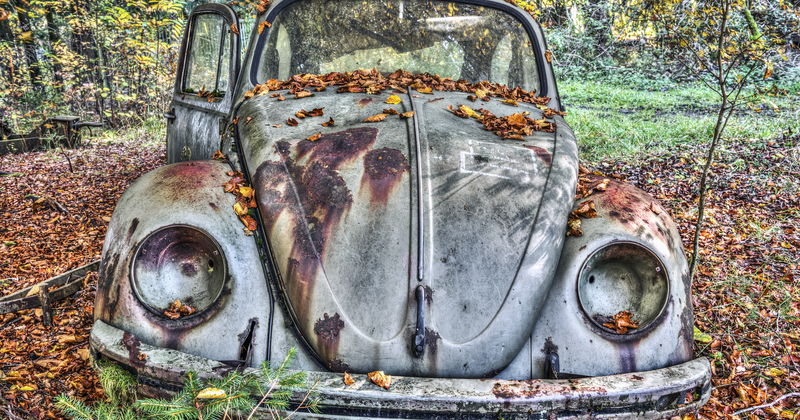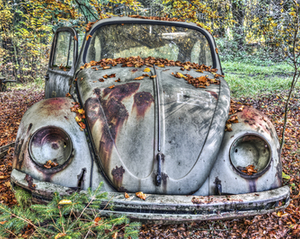The Type 1 – more commonly known as a VW Beetle – made its public debut at the Berlin motor show in 1939. Over its 65-year life span around 21.5 million models rolled off production lines around the world making it the most popular and perhaps most cherished car ever. It was cheap to buy, economical to run and easy to maintain. Production peaked in 1971 when 1.3 million models were made and the final model (#21,529,464, built in Mexico in July 2003) now resides in the VW museum in Wolfsburg, Germany.

Whilst now few and far between, you still occasionally see classic VW Beetles on the roads. Keeping them running means specialist insurance policies and possession of or access to premium expertise, knowledge of a diminishing network of rare part suppliers, and a heavy schedule of preventative or on-going or never-ending maintenance. All of which represent higher cost and absorb more time than an equivalent modern vehicle. When you acknowledge that and then consider noise, safety, reliability and comfort, it is difficult to see why anyone perseveres.
But they do. Some through nostalgia. Some because the Beetle is cute, pretty even – certainly more attractive than many of its drab and soul-less counterparts that are available today. Some, I’m sure, enjoy the whole process, seeing the mechanics and maintenance a pleasurable hobby and concours condition examples are the pride and joy of their owners and the envy of classic car enthusiasts everywhere.
Whatever the reason, it’s part of the fabric of society. The restoration and maintenance of classic cars, bicycles, furniture, houses and so forth is a personal endeavour that will probably continue to exist and whilst the vehicles that are considered classic might change, the desire to keep them running will not.
In the financial services industry however, where decisions are generally driven (excuse the pun) by efficiency and cost, and any time or cash spent on maintenance of “Classic systems” just erodes profit, what motivation is there to keep old systems running? Legacy systems, or as we are now beginning to call them “Heritage systems” aren’t cute. They’re actually just a massive headache and it takes a rare and special breed of person to gaze upon them adoringly.
In its most common interpretation, “legacy” suggests that something is certainly inherited, and maybe unwanted. In terms of software, “legacy” systems are acknowledged to have been superseded but are often difficult to replace because of their wide use and the operational upset change might cause.
Heritage typically denotes a traditional brand or product that’s regarded as emblematic of fine craftsmanship or something of historical, or natural value that are preserved for benefit of the nation. Neither of which seem to be applicable to financial services software, which evolves and improves through each iteration and does not require preservation in the same way an artefact does.
Can I take a look under the bonnet?
Almost always, use of either descriptors are just attempts to mask the reality of the situation and they somehow feel like an excuse. When competitive offerings are the same (or similar), the client experience becomes the strongest differentiator and the operational platform used to provide that customer service will increasingly be questioned with regard to its suitability.
It wouldn’t surprise me to start to hear of potential clients asking what software or platform you use, just like one might ask the year, make and model of a car. Any business therefore needs to ensure that their platform is optimised for their business and their clients. They need to make sure it delivers what their clients expect reliably, accurately and on time, every time. Only then can the client ensure that they are achieving the best they can from the fees you charge them.
If you hire a taxi, you want it to get you to your destination quickly, reliably and comfortably whilst incurring the least risk possible. There are many cars that can take you in a traditional but maybe clunky way. If the taxi driver turned up in a classic Beetle, you’d probably be a little surprised and concerned you may not arrive on time. If it was the latest Tesla at your door, you’d be impressed and confident about the journey.
Classic, traditional or heritage systems – they all require a lot of upkeep and maintenance and aren’t as good, safe or efficient as the later generation model.
Opus Nebula are re-defining client reporting with Reporting as a Service. We remove the headache of legacy systems and power the process with cloud-based “as a service” technology. You AND your clients benefit from the flexibility and power of the solution, the scale and the cost efficiency.

